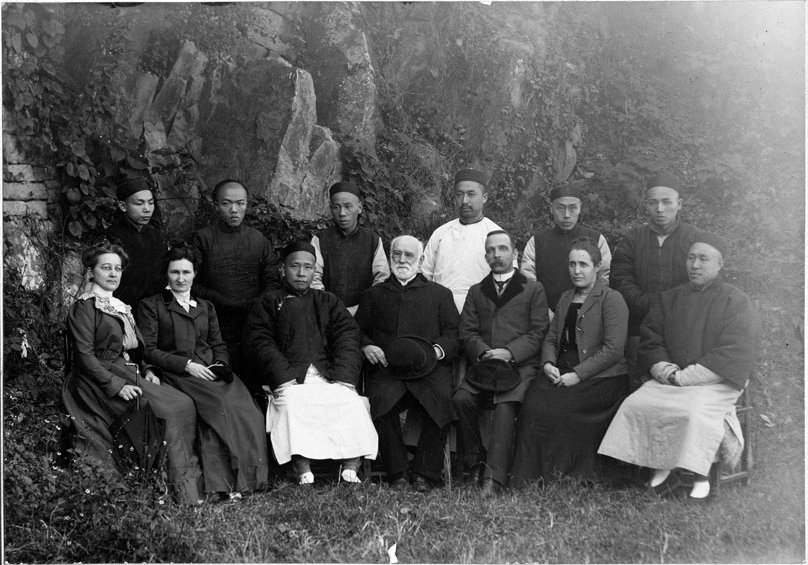CHARLES HARTWELL
MISSIONARY
TO CHINA
“I am only one, but I am one. I cannot do everything, but I can do something. And I will not let what I cannot do interfere with what I can do.” — Charles Hartwell
Hartwell University® honors the memory of this great missionary and draws inspiration from his incredible life. The legacy of his namesake is interwoven into the meaning of our name.
Charles Hartwell (1825-1905) was a remarkable missionary known for his significant contributions to spreading Christianity in China during the late 19th and early 20th centuries. Born in Lincoln, Massachusetts, Hartwell dedicated his life to serving others and sharing his faith. He studied theology at Amherst College and earned a Master of Arts degree. A year later, he and He and his first wife, Lucy Stearns Hartwell (d. 1883), entered the service of the American Board of Commissioners for Foreign Missions (ABCFM).
As an important backstory, ABCFM was the result of a student prayer meeting at Williams College in 1806, which gave birth to the American Foreign Mission Movement. Seeking shelter from a thunderstorm, five students gathered in a haystack and were inspired to spread the Gospel overseas. This led to the establishment of the American Board of Commissioners for Foreign Missions (ABCFM), the first American organization to send missionaries abroad. The Haystack Monument on the Williams College campus commemorates this significant “Haystack Prayer Meeting.”
As missionaries sent by ABCFM, Mr. and Mrs. Hartwell sailed for China from New York on the Talbot in 1852. They arrived in Hong Kong after 164 days of arduous travel on April 17, 1853. Their daughter, Emily Susan Hartwell, was born six years later on April 16, 1859.

Charles Hartwell (pictured in white beard) with Fuzhou College faculty, 1903.
Father Hartwell, as Charles became known, spent over fifty years actively involved in missionary work in China. Along with his daughter and first and second wives (he wed Hannah Peet in 1885), he established churches, schools, and translated many books of the Bible into the Fuzhou dialect. He also trained students for ministry, authored textbooks, and established hospitals (including a women’s hospital).
Hartwell’s efforts in promoting education and medical services greatly impacted the lives of many Chinese people. His deep respect for their culture and his commitment to ethnic adaptation helped him connect with the local population, earning him their trust and respect. He also worked extensively across denominational lines with Baptists, Methodists, Presbyterians, and others.
Upon his death in 1905, General Sung sent his music band to escort the funeral procession and three Chinese officials were sent to represent Viceroy Lu Zhongqi. One of his friends said of him, “He had a soul-satisfying religious experience, a world-conquering faith, and the bright hope that springs from such faith.”
An intriguing aspect of Charles’ family history is his connection to Hartwell Tavern, which played a significant role in the American Revolution. On April 19th, 1775, British soldiers captured Paul Revere near the tavern during their midnight ride. His companion, William Dawes, was chased and lost his mount. A third rider, Dr. Samuel Prescott, evaded capture and Charles’ grandparents, Samuel and Mary Hartwell, were alerted. Mary was instrumental in sounding the alarm while Samuel, a gunsmith, readied for battle as a soldier in the militia. The swift relay of information proved crucial in the defense against the British troops and played a vital role in the famous “shot heard around the world” at the battles of Lexington and Concord that day. Charles’ great uncles were also Minutemen in the battle.
Another point of peculiar interest is that Charles Hartwell’s second wife, Hannah, attended Mount Holyoke Female Seminary in 1848 with famed poet, Emily Dickinson. Emily’s brother, Austin Dickinson, attended Amherst College with Charles.
In summary, the unwavering dedication of Charles Hartwell to his mission and his deep compassion for those in need made him a highly influential figure in the history of Christian missions in China.
